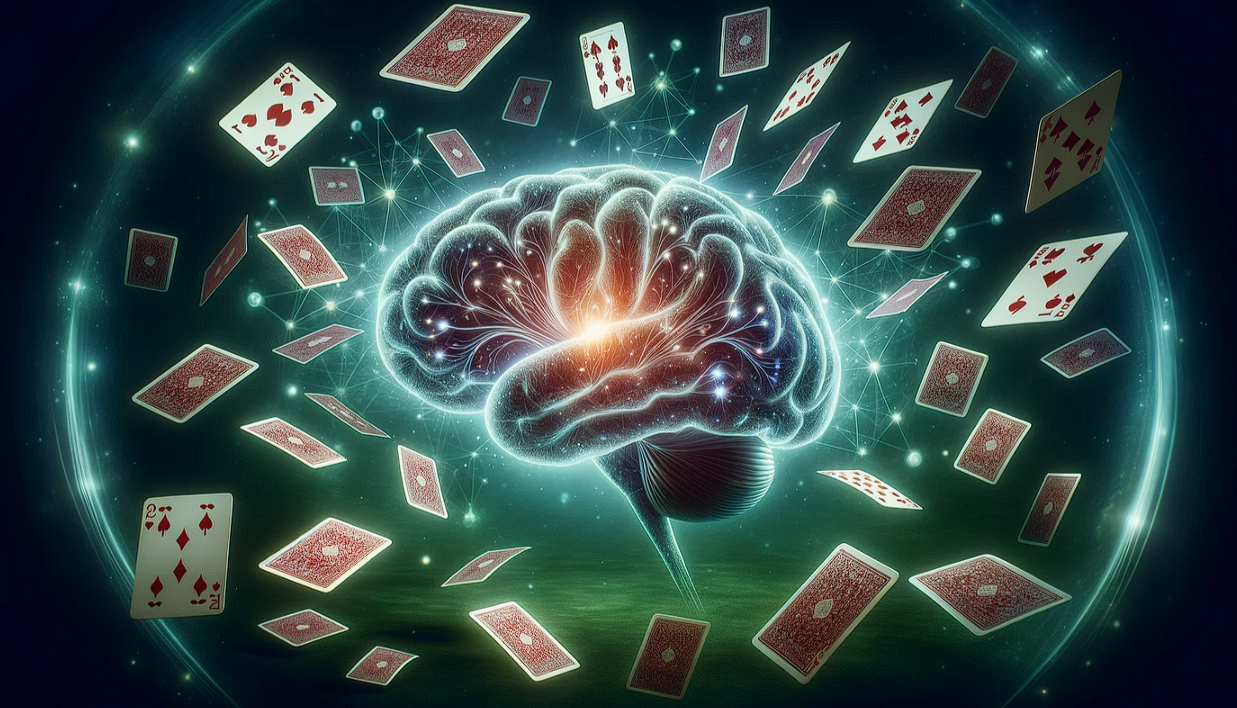Gambling is a widespread activity that attracts millions of people worldwide. Whether it’s betting on sports, playing casino games, or participating in lotteries, the allure of gambling is undeniable. Understanding the psychological reasons behind why people gamble can provide valuable insights for bettors and help them make more informed decisions. This article delves into the psychological motivations behind gambling and explores the various factors that drive people to engage in this activity.
The Thrill of Uncertainty
Excitement and Adrenaline
One of the primary reasons people gamble is the thrill and excitement it provides. The uncertainty of the outcome creates an adrenaline rush that many find exhilarating. Here are some key points:
- Anticipation: The anticipation of winning or losing can be highly stimulating.
- Risk-Taking: The element of risk adds to the excitement, making the experience more engaging.
- Immediate Feedback: Gambling often provides immediate feedback, which can be satisfying and rewarding.
Social and Cultural Factors
Social Interaction
Gambling is often a social activity that brings people together. Whether it’s a night out at the casino or a friendly bet among friends, the social aspect can be a significant motivator. Consider the following:
- Community: Gambling can create a sense of community and belonging.
- Peer Pressure: Sometimes, people gamble because their friends or peers are doing it.
- Cultural Norms: In some cultures, gambling is an accepted and even encouraged activity.
Cultural Influences
Cultural influences also play a role in why people gamble. In some societies, gambling is deeply ingrained in the culture and is seen as a normal part of life. For example:
- Traditions: Certain traditions and festivals may involve gambling activities.
- Media and Advertising: The portrayal of gambling in media and advertising can glamorize it and make it more appealing.
- Role Models: Seeing influential figures or role models engage in gambling can inspire others to do the same.

Economic Motivations
Financial Gain
The potential for financial gain is a powerful motivator for many people. The hope of winning big and improving one’s financial situation can be a strong driving force. Consider the following:
- Quick Money: The possibility of winning a large sum of money quickly is enticing.
- Escaping Financial Struggles: Some people turn to gambling as a way to escape financial struggles or debts.
- Investment Mindset: Others view gambling as a form of investment, hoping to make a profit.
Perceived Value
The perceived value of gambling can also influence people’s decisions to engage in it. For instance:
- Entertainment Value: People may see gambling as a form of entertainment that provides value for money.
- Skill and Strategy: Some forms of gambling, like poker or sports betting, require skill and strategy, adding to the perceived value.
- Promotions and Bonuses: Attractive promotions and bonuses offered by gambling platforms can entice people to participate.
Psychological Factors
Cognitive Biases
Cognitive biases can significantly influence gambling behavior. These biases can lead people to overestimate their chances of winning and underestimate the risks involved. Some common cognitive biases include:
- Gambler’s Fallacy: The belief that a random event is more or less likely to occur based on past events.
- Overconfidence: Excessive confidence in one’s abilities and judgment.
- Hindsight Bias: The tendency to see past events as more predictable than they actually were.
Emotional Factors
Emotions play a crucial role in gambling behavior. The thrill of winning and the fear of losing can create a rollercoaster of emotions that keep people engaged. Consider the following:
- Euphoria: The euphoria of winning can be highly addictive.
- Frustration: The frustration of losing can drive people to keep trying in hopes of a win.
- Escape: Gambling can serve as an escape from everyday stress and problems.
Addiction and Problem Gambling
Risk Factors
It’s essential to recognize the risk factors associated with problem gambling. Understanding these factors can help bettors identify potential issues and seek help if needed. Some risk factors include:
- Personality Traits: Certain personality traits, such as impulsivity and sensation-seeking, can increase the risk of problem gambling.
- Mental Health Issues: Conditions like depression, anxiety, and substance abuse can contribute to problem gambling.
- Environmental Factors: Easy access to gambling, peer pressure, and cultural norms can also play a role.
Signs of Problem Gambling
Recognizing the signs of problem gambling is crucial for early intervention. Some common signs include:
- Preoccupation: Constant thoughts about gambling and planning the next gambling session.
- Chasing Losses: Attempting to recoup losses by gambling more.
- Financial Problems: Borrowing money or selling possessions to fund gambling.
- Relationship Issues: Strained relationships due to gambling-related conflicts.
Conclusion
Understanding why people gamble involves exploring a complex interplay of psychological, social, cultural, and economic factors. By recognizing the motivations behind gambling, bettors can make more informed decisions and be aware of the potential risks. Whether it’s the thrill of uncertainty, the social interaction, the hope of financial gain, or the influence of cognitive biases and emotions, gambling is a multifaceted activity that appeals to people for various reasons. It’s essential to approach gambling responsibly and be mindful of the potential for addiction and problem gambling.

